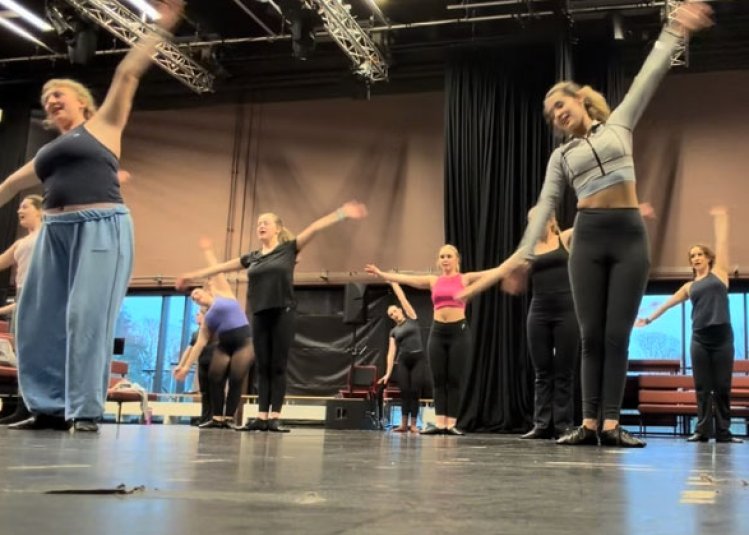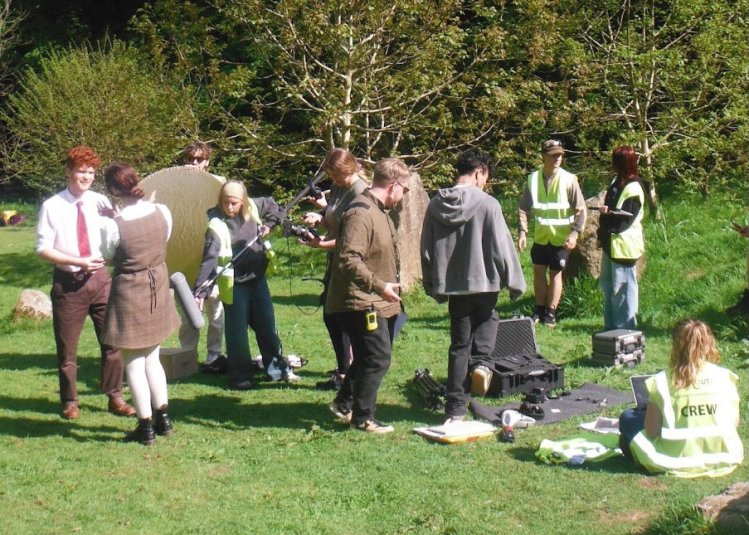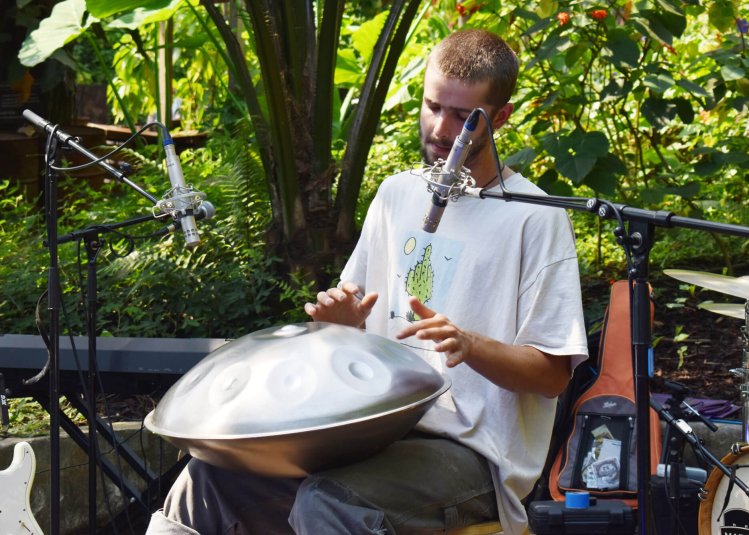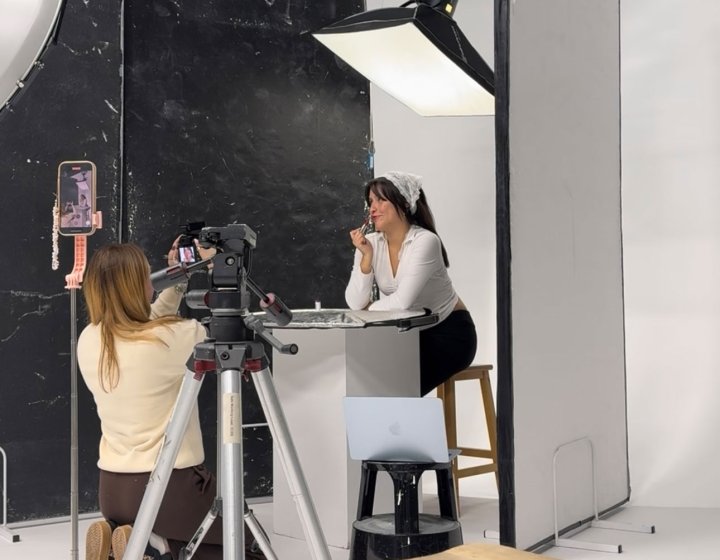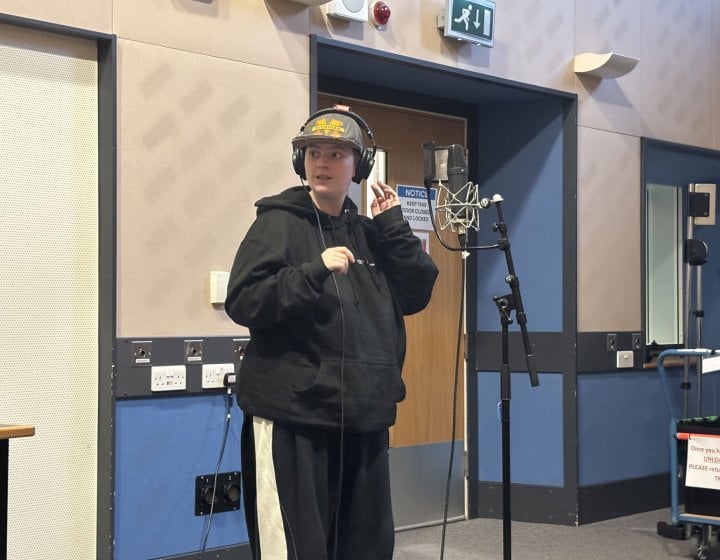Studying Game Art at Falmouth University
29 May 2025
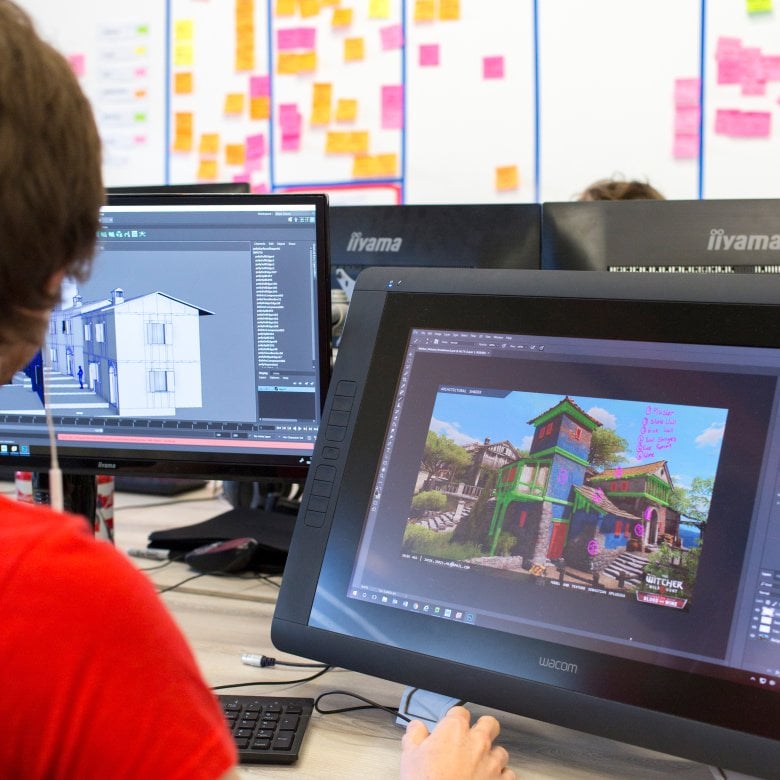
This article was written by Game Art BA(Hons) student Ooshi.
Despite not knowing exactly what I wanted to study at University, I knew I wanted to do a digital arts course that could help me get a job in a similar area. I've done a lot of fine art/traditional artwork in the past, and I knew at this point, it just was not the right pipeline for me. My passion for art is still huge and so I wanted to use that in a sector I also enjoy greatly, that being games.
Looking up the Games Academy at Falmouth University, I was immediately hit with the awards and achievements it has received throughout the years, being the 13th top games school in the world and receiving multiple awards at The Rookies, one of them being concept (game art) related!
Just the idea of being able to create the art for games that I see every day filled me with so much excitement. I knew from the beginning of seeing students' final work at an Open Day that this was going to be a course I'd learn from heavily.
For those who aren't as sure as myself (an extremely understandable position), Game Art consists of three separate modules: environment art, character art, and concept art. Environment art focuses on 3D modelling, texturing, and rendering lights in a scene. Character art involves 3D sculpting, creating both organic and still-life sculptures. Finally, concept art involves 2D drawing, painting, and rendering, both of characters and environments.
Because they are three separate modules, there's a specific teacher for each, all with extremely impressive backgrounds working on titles including Grand Theft Auto, World of Warcraft, League of Legends and Project Gotham Racing. They aren't only good at teaching, but they've all been in the workplace of that subject as well, knowing exactly how to train someone to become workplace level.
They use what they've learnt in these jobs, good and bad, within their teaching too, so you get to learn first-hand what it'll be like to be part of the industry. This is something I've found hugely different to college, and it was so inspiring to see my teachers create amazing work in front of me that I could push myself to try and create similar.
All modules have their likes and dislikes from me after spending the year on all three, but altogether I'm extremely thankful I was made to do all of them, even with it being a lot to learn and work on. It feels incredible being able to use so many different types of software and create both 3D and 2D work that I can be proud of and that are on their way to being workplace standard.
There's also the wonderful added bonus of all these modules being taught from scratch, so no matter what your skill level in any of these sectors when you start the course, you'll end up with amazing work by the end of it. This was something that gave me a lot of hope when starting university, as I had never 3D modelled before, and now I feel as if I can create anything I want if I put my mind to it enough, now knowing all the tools I need to do this.
At the end of your first year, you pick which module you want to move forward with as a specialism, learning more in-depth teaching and getting to push that segment in which you feel most passionate about to an even higher level. Though in no way at all do you need to worry about losing these skills, as in both second and third year, group work is an entire module, so you'll be surrounded by your peers who are pushing forward with the other sides of game art. They might need assistance or advice, and you can use the skills you know to help. Group work doesn’t start until year two, but I personally liked this difference from the other games courses as I was able to put my full focus into learning what I needed to and achieving the best results in my coursework.
Expo follows along with the results of group work and personal work, showing the best pieces alongside the people who made them. It’s an incredible experience and event to go to, with talks by professionals there to really boost everyone’s understanding and connections of the working world after university.
Outside of the course, I have just found Falmouth itself a lovely place to study. The sights are breath-taking even with having previously lived near the sea, I’m going to miss it leaving even just for the summer! I couldn’t recommend the experience any more for being a game artist at Falmouth University.
